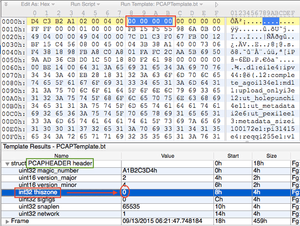IPv6 artifacts are pieces of digital evidence that can be collected and analyzed in the process of IPv6 forensics. These artifacts can take many forms, including network logs, system logs, cached data, and other types of digital evidence.
One common type of IPv6 artifact is network logs, which can provide information about the communication that has occurred over an IPv6 network. Network logs can include information such as the source and destination addresses of the communication, the type of communication (e.g. HTTP, FTP, etc.), and the time and date of the communication.
System logs are another common type of IPv6 artifact, and they can provide information about the activity that has occurred on a particular device or system. This can include information about system events, user activity, and other types of activity that may be relevant to a forensic investigation.
Cached data is another type of IPv6 artifact that can be collected and analyzed in the process of IPv6 forensics. This can include data such as web browser cache, DNS cache, and other types of temporary data that may contain relevant information.


